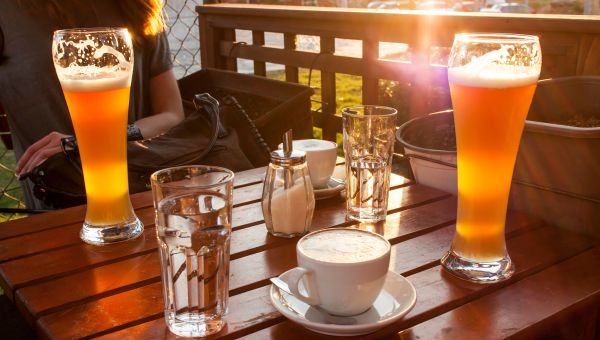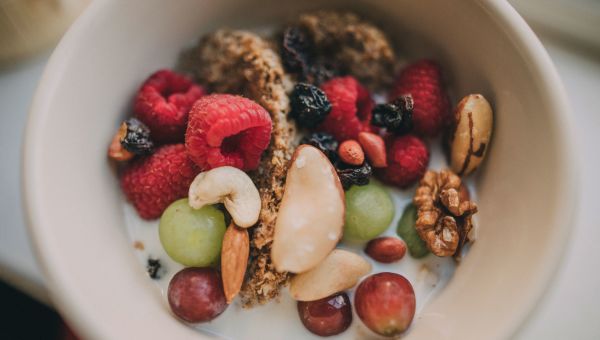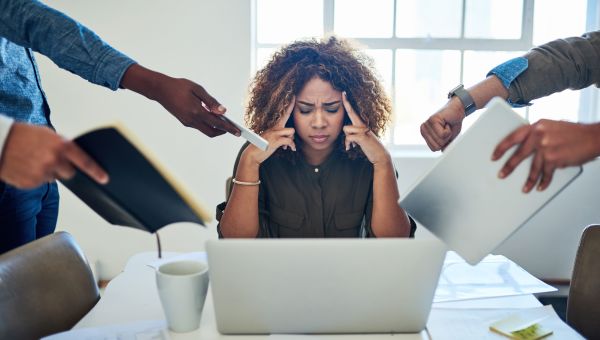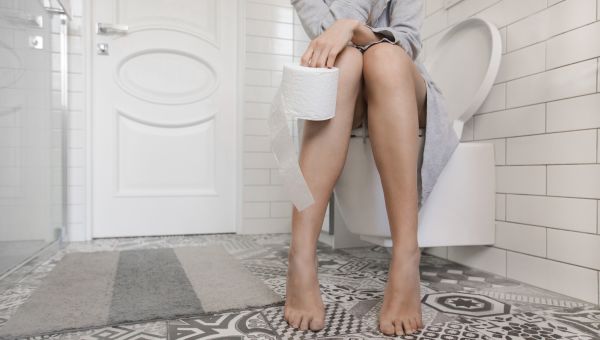8 things causing your constipation—plus tricks to relieve it
Feeling backed up? It's common, and your lifestyle habits might be to blame.

Most of us have felt the effects of a stuffed-up digestive system, and it's uncomfortable to say the least. In fact, each year more than 2.5 million Americans visit their healthcare provider for relief from constipation.
"It's more common [and most dramatic] in patients 65 years and older," says Dr. Gauree Konijeti, Director of the Inflammatory Bowel Disease Program at the Division of Gastroenterology at Scripps Clinic in San Diego.
Constipation is often defined as stool frequency less than three times per week, but people can also think about constipation in different ways. "For some people, it may be hard stools or small pebble-like stools that don't completely come out," says Dr. Konijeti. "Others may feel constipated when they are straining to get the stool out, but the consistency is fine. Some people might have bowel movements every day but say they are constipated; it might just be more related to consistency."
Regardless of how that constipated feeling manifests itself in your body, it's important to discuss concerns with your doctor or a gastroenterologist, especially if it's a new problem, lasts longer than a couple of weeks, feels severe or comes with other symptoms, like blood in the stool or fever.
Here are some ways you might get stuffed up, plus ways to get things moving again.

You're not moving enough
Physical activity, in itself, is associated with more gut motility, says Konijeti; motility refers to how the muscles in your gastrointestinal tract stretch and contract to move food through your body. She adds that many people still do not realize how great exercise is for this and overall gut health. However, she cautions that, even if you're getting regular exercise, not getting enough fluid and fiber can still create constipation. You should aim for 150 minutes of exercise at moderate intensity every week to maintain good health.

You're pregnant
If you're expecting, constipation can arise; between 16 and 39 percent of women deal with it during pregnancy. This is largely because hormonal changes impact the motility of the gut. In addition, the compressive effects of a human growing inside of you leaves your gut with less room to move, digest and process foods, according to Konijeti. It's important to still move around and drink plenty of water to keep your gut, the baby and you as healthy as possible.

You travel a lot
It's not so much the act of traveling, but what you do or don't do on the road that can leave you feeling backed up. "You might just be less active or not getting enough fluid or eating the right foods," says Konijeti.
Another reason could simply be the change in routine when you're not following your regular schedule. One study even says that gut issues like diarrhea and constipation can be common among people who frequently hop time zones, which is a significant disruption in that biological rhythm.

You are on certain medications or supplements
Several medications have been associated with constipation, including:
- NSAIDs
- Antidepressants
- Antacids
- Sedatives
- Narcotics
- Iron supplements
- Antihistamines
- Diuretics
"Even if patients are just taking a ton of TUMS, you can get constipated from those," says Konijeti.
Calcium supplements may also cause constipation, especially in the elderly who might be taking them more to boost bone health. "The mechanism related to constipation is when high calcium levels result in decreasing smooth muscle contraction of the gut," she explains. It's important to discuss any supplements or new medications with your doctor.

You're drinking too many dehydrating beverages
Konijeti says that anytime you eat, it stimulates a gastrocolic reflex, which triggers the urge to have a bowel movement. But drinking too many dehydrating beverages can disrupt that process if you're not getting enough fluids otherwise with your meals. Things like alcohol should be enjoyed in moderation and supplemented with other fluids.

You might have another condition
Ever heard of dyssynergic defecation? It's when your pelvic floor muscles have trouble allowing you to have a bowel movement—and it affects up to 50 percent of people with chronic constipation. "[People] might have gotten into a certain habit of defecating that results in an inappropriate contraction of their muscles. So, they might have a harder time using the bathroom," says Konijeti. "A doctor can diagnose this through a rectal exam and help you deal with the issue through biofeedback and behavioral training of those muscles."

You don't eat enough fiber
A lack of fiber in your diet can be a big reason for constipation. Proceed with caution when upping your dose, though; fiber consumption should be individual to the person and discussed with your doctor. And ideally, it should be consumed through fresh produce over a supplement. "I tell them to do it gradually," Konijeti says, "otherwise you can have some big issues." She suggests using an app to track the amount you're consuming; a lot of people are surprised when they realize they don't get enough of it.

You're stressed
Although the exact connection between constipation and stress levels is unknown, "We do know there's a brain-gut connection, and that can certainly influence the motility of our gut, as well as immune cells," notes Konijeti. She also says there's an effect on bowel habits as a result, but people manifest stress in different ways.
Still, it doesn't hurt to manage your stress levels, whether it's through meditation, exercise or another method. Tracking your stress can help, too, by pinpointing triggers and measuring changes over time; try Sharecare's stress tracker, available on iOS and Android.

Still stuffed up? Try laxatives
Konijeti says one of the most common approaches she uses for chronic constipation is laxatives, although this is not intended as a long-term fix. "We are using them to help get you back on track," she says. "Once you're back on track, we do other things to keep it that way." Although some people might develop a dependency on laxatives to keep their bowels moving, that's not the intention, and you should consult your doctor before trying them.
More On


video

article


video

article

article
